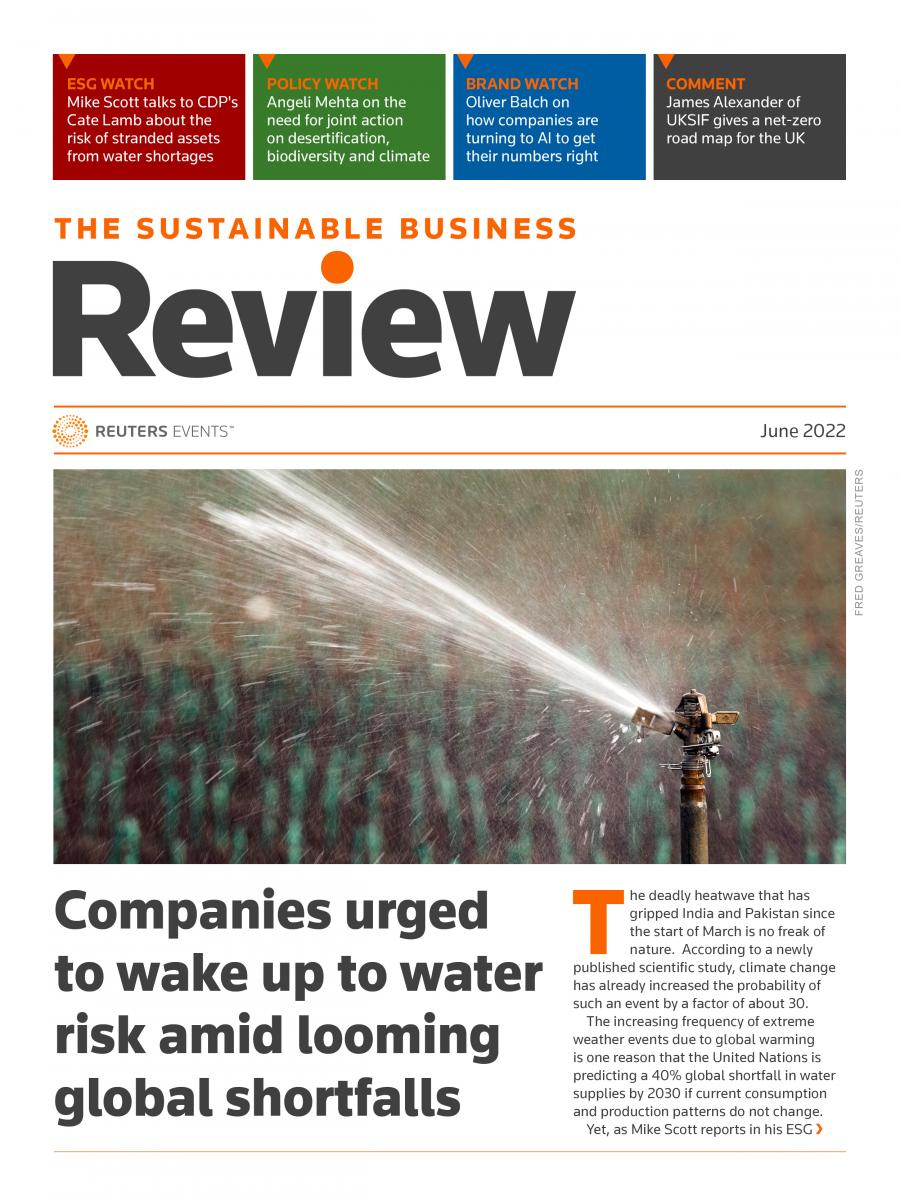In the June issue of The Sustainable Business Review we report on the risk of stranded assets due to water scarcity, the need for joined-up action on climate change, desertification and biodiversity loss, and how companies are looking to AI to help them decarbonise. We also report on key themes from the recent Responsible Business U.S.A. event in New York
The deadly heatwave that has gripped India and Pakistan since the start of March is no freak of nature. According to a newly published scientific study, climate change has already increased the probability of such an event by a factor of about 30.
The increasing frequency of extreme weather events due to global warming is one reason that the United Nations is predicting a 40% global shortfall in water supplies by 2030 if current consumption and production patterns do not change.
Yet as Mike Scott reports in his ESG Watch column this month, water risk is a blind spot for a large proportion of companies, with a third of listed financial institutions failing to assess exposure to water risk in their financial activities, according to disclosure organisation CDP.
“Some companies don’t even know where the key to the meter room is,” says Cate Lamb, CDP’s water lead.
Angeli Mehta picks up on the water theme in her Policy Watch column this month, reporting on a meeting of the U.N. Convention to Combat Desertification (UNCCD) in Cote d’Ivoire, the first of the year’s three big United Nations summits.

Delegates were urged to take a holistic approach to tackling the three interlinked crises of biodiversity loss, desertification and climate change, as more can be accomplished by working on them together rather than individually.
Oliver Balch’s Brand Watch column shifts gears to focus on the use of artificial intelligence to help decarbonise supply chains and the growing appetite for “tech-for-good” solutions.
The need for be able to access and manage data to get a grip on supply chain emissions was a recurrent theme of Reuters Events’ recent Responsible Business Summit in New York, as I report in my write-up. But companies will also need to engage in unusual collaborations if they are to get suppliers to come along on their net-zero journeys.
Mike Scott reports on another focus of the conference, developments on sustainable finance in the United States, hot on the heels of the Securities and Exchange Commission publishing its proposals for mandatory reporting of climate risk.
And the last word comes from James Alexander, chief executive of the UK Sustainable Investment and Finance Association. He argues that the UK government should replicate its success supporting offshore wind across other sectors as it seeks to deliver on its net-zero commitments.

CDP water risk BCG biodiversity desertification supply chains


